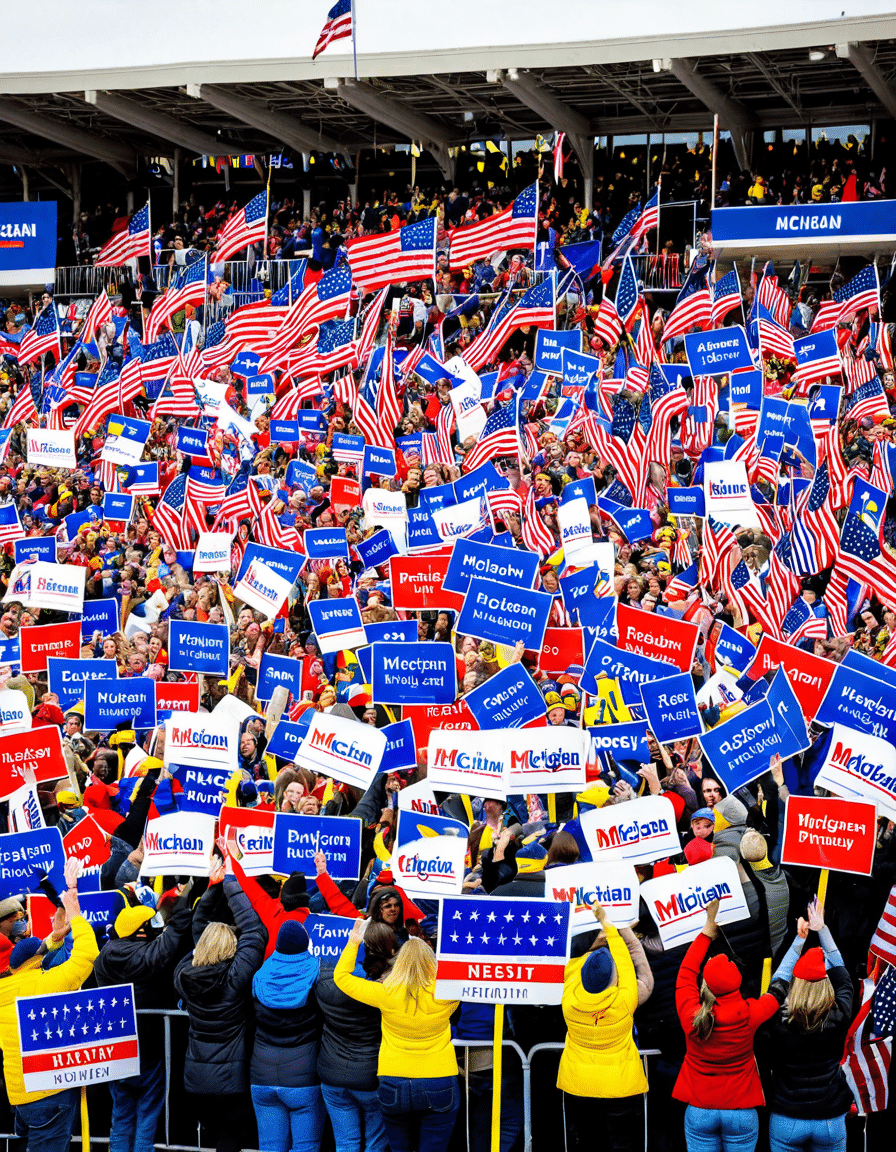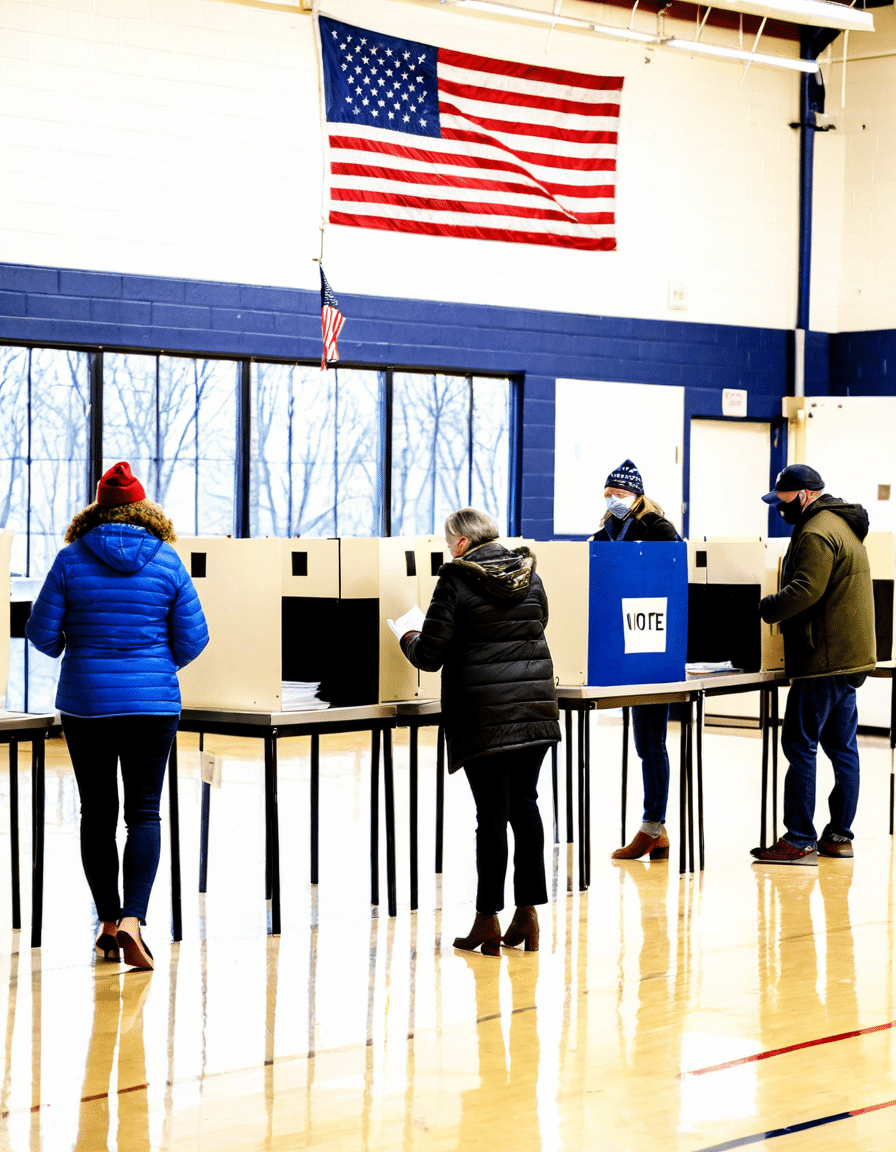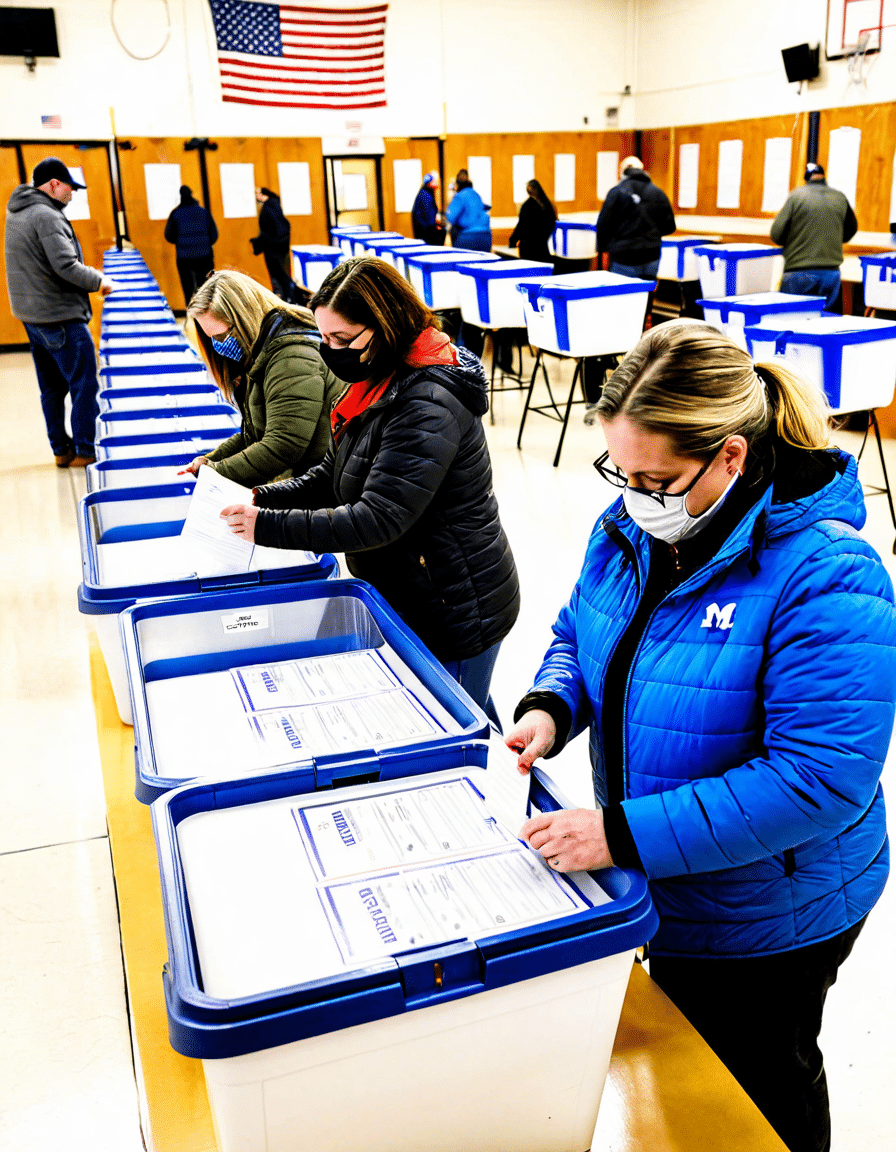The Michigan primary results have stoked a fierce debate among voters and political analysts, sparking discussions that echo beyond state borders. As the nation gears up for the upcoming election season, the intricacies of these results provide crucial insights into voting patterns, key issues that resonate with the electorate, and strategies that candidates might adopt. With the stakes high, it’s essential to understand how these primary results set the tone for both local and national political conversations.

Key Takeaways from the Michigan Primary Results
The Michigan primary witnessed a remarkable uptick in voter turnout, with around 60% of registered voters participating. This surge is being credited to a rise in political engagement among citizens, driven by amplified grassroots mobilization efforts. Candidates, especially Governor Gretchen Whitmer, focused on local issues such as education and healthcare, which resonated deeply, particularly with younger voters and communities that have historically been sidelined.
On the Democratic side, candidates like Rep. Rashida Tlaib enjoyed enthusiastic support, pushing their progressive agendas. In contrast, Republicans faced significant challenges, grappling with feelings of apathy and party infighting. The absence of a unifying candidate has left many GOP voters wondering about their party’s direction. This mirrors the struggles noted during the Nevada primary, where a lack of enthusiasm hindered voter turnout.
Michigan boasts a diverse electorate encompassing urban hubs like Detroit and expansive rural areas. This dynamic creates a microcosm of national discussions, as various issues like the economy, healthcare, and climate policy motivate different voter factions. Such trends resemble those observed in the California primary, where climate change initiatives sparked intense debate and mobilization.
When we pit the Michigan primary results against those from the Minnesota primary, sharp contrasts emerge. Minnesota’s Democratic farmers appeared remarkably unified, collectively rallying behind their candidates. This unity starkly contrasts with Michigan’s urban-rural divide, which has raised pressing questions regarding future Democratic strategies in Midwestern states. Will Michigan follow Minnesota’s lead, or is a patchwork of local factions the new norm?
Endorsements from influential figures played a pivotal role in shaping outcomes during both the Michigan and Nevada primaries. For example, the impact of Bernie Sanders on progressive candidates illustrates how endorsements can galvanize voter bases and sway undecided voters. Candidates recognize this strategic path moving forward, navigating their campaigns toward collaborations with high-profile backers.
With the primary results now part of history, candidates are reassessing their game plans. Michigan candidates have begun sculpting their messages to counter GOP narratives while leaning heavily on grassroots support. This tactical shift is reminiscent of approaches seen in California, where candidates’ stands on housing and economic reform have become vital pillars in their campaigns.
The fallout from these primary results reaches beyond immediate electoral battles. Michigan stands to influence pressing issues such as labor rights, infrastructure, and public health, all of which are poised to shape national discussions leading up to the significant 2026 elections. Analysts argue that addressing these topics effectively could prove crucial in wooing both the traditional base and new voting demographics.

A Broader Perspective on National Trends
The Michigan primary has shed light on the state’s political landscape while also sending ripples across the national stage. Similar debates arising in states like California and Minnesota highlight a shifting political climate. Candidates and party leaders are increasingly attuned to the intricate voter behaviors—rooted in local issues—that they must master for success in the 2026 elections.
Analysts emphasize that these primary results reveal more than raw numbers; they encapsulate evolving ideologies and priorities amid a complex electorate. Political factions capable of weaving these insights into their strategies stand to gain significant advantages in the upcoming battles. The Michigan primary results have established a crucial point of reference, influencing both local tactics and broader national discussions in a rapidly transforming political environment.
As we move toward the electoral horizon, one thing is clear: the Michigan primary results are not just a fleeting statistic; they are a pivotal moment that lays the groundwork for future political engagements. Understanding these outcomes and their implications is vital for anyone wanting to grasp the shifting sands of American politics. Forces like Gina Rodriguez’s movies and TV shows might dominate entertainment conversations, but it’s the political fabric woven from events like these that will ultimately dictate the course of the nation’s future.
Michigan Primary Results: Fun Trivia and Interesting Facts
The recent Michigan primary results have sent ripples through the political landscape, but did you know Michigan is also home to some interesting educational opportunities? For instance, the Albert Einstein College of Medicine is shaking things up with its initiative offering free tuition. This could redefine how aspiring doctors in Michigan think about financial burdens while pursuing their dreams in medicine. It’s a refreshing take on higher education, showcasing how progressive policies can pop up in unexpected places!
Now, shifting gears a bit, politics isn’t the only field filled with excitement. Recent discussions around gaming have taken a twist with the crossover of popular franchises, like in “Overwatch” and “My Hero Academia”, which have captivated audiences worldwide. Just imagine the thrill of a face-off between heroes from these beloved games! As intense as the debates are regarding the Michigan primary results, equally compelling narratives unfold in the gaming community, drawing parallels to how voters are gearing up for action this election season.
And speaking of action, it’s worth noting how political movements can echo across the globe. For example, the rise of the Alternative For Germany party highlights how shifts in voter sentiment can lead to significant changes in governance. This is a reminder that the Michigan primary results aren’t just a local story; they’re part of a bigger narrative on how democracy can adapt and evolve in various environments.
Oh, and before we forget, let’s take a moment to appreciate the culture makers out there! Michigan has produced some intriguing talents, including Gina Rodriguez, known for her captivating performances in films and TV shows. Her journey mirrors the civic engagement we’re seeing in debates influenced by the Michigan primary results, where every vote can lead to a transformative story. Just like in cinema, where plot twists keep audiences on their toes, the political scene in Michigan encourages citizens to stay alert and engaged!




